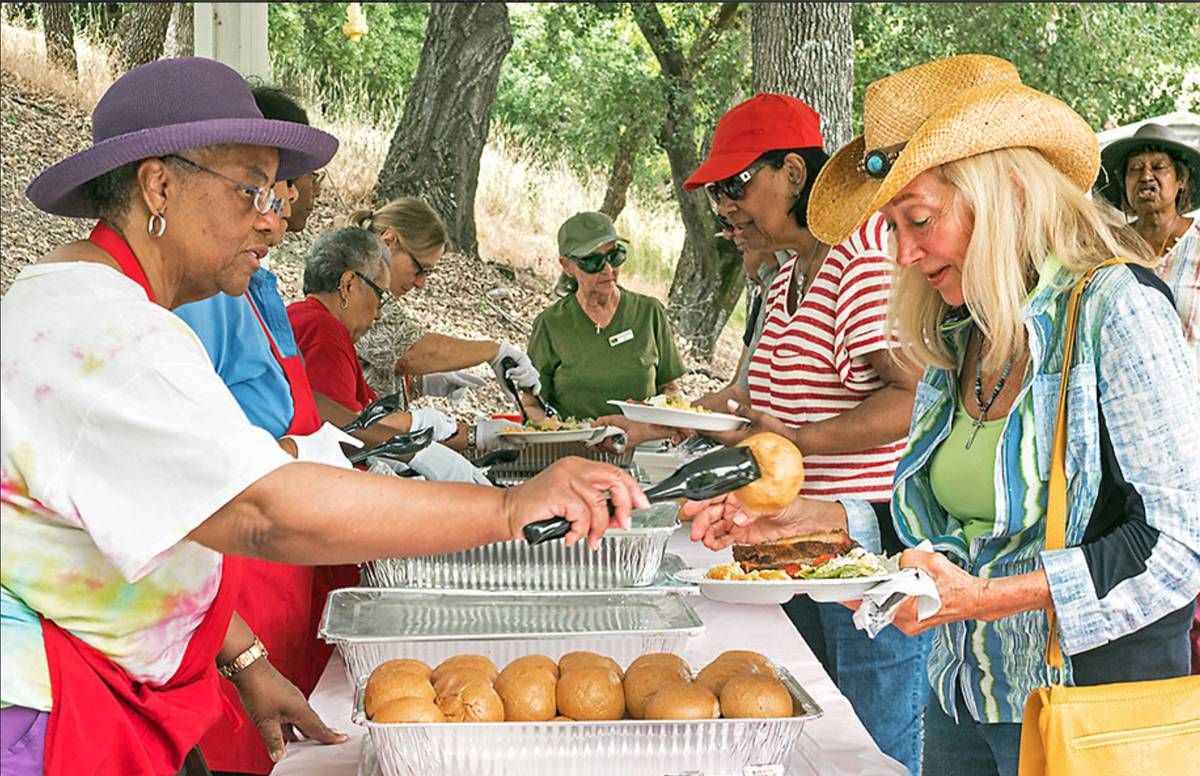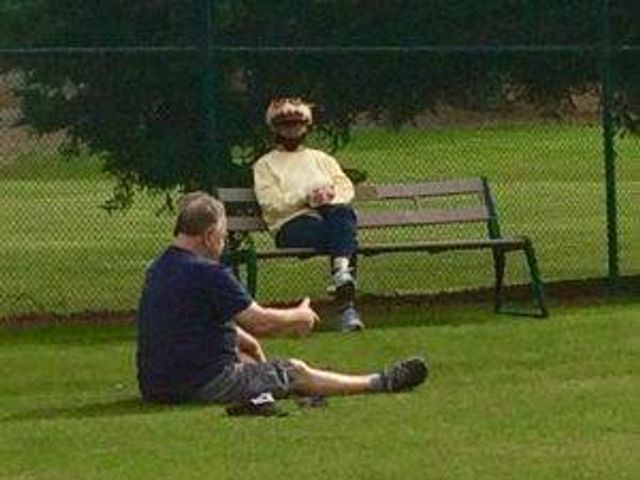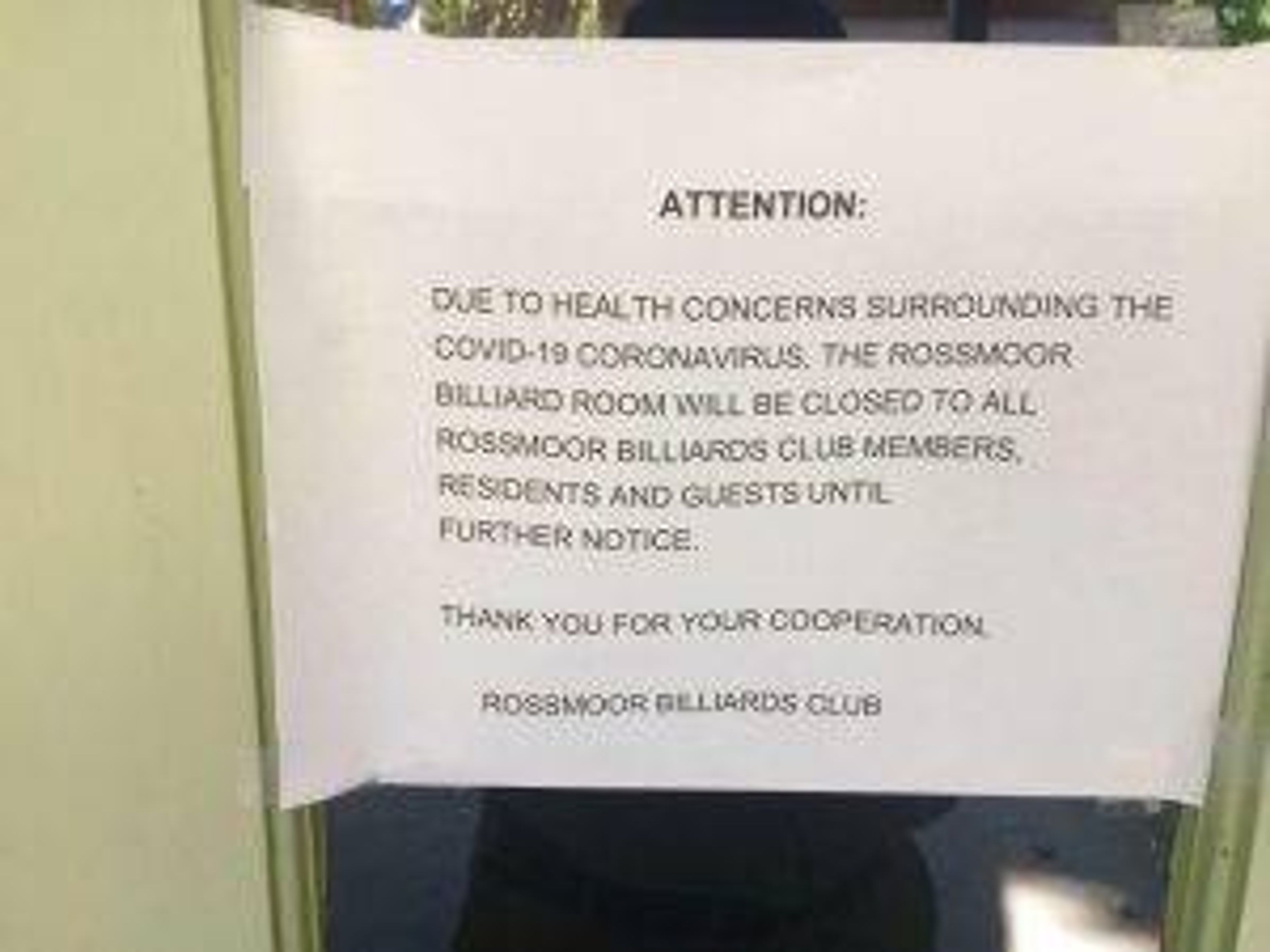When COVID-19 Takes the Community Out of Your Retirement Community
At Northern California's Rossmoor, residents have reimagined their world
In normal times, Rossmoor, the 1,800-acre “active senior community” where I live, in Walnut Creek, Calif., is a cacophony of sound. There are the crack of the mahjong tile, the thwack of the pickleball hitting a racquet, the clink of the wine glass, the strains of a classic rock tribute band in concert. All evidence the ceaseless hum and general good fellowship at the San Francisco suburban community once known as Leisure World.

These, of course, are not normal times.
Rossmoor, which has almost 10,000 residents ranging in age from late 50s to centenarians, boasts more than 200 clubs and organizations — educational, recreational, athletic, religious — plus 27 holes of golf, a spiffy new fitness center, a first-class weekly newspaper, a community TV channel and a full slate of entertainment. Residents live in a mix of housing, from single-family to one-bedroom condos, each on an entry, which is like a small block. The layout, like the atmosphere, encourages mingling.
At Rossmoor, the Sudden Sounds of Silence
At least it did until March 16, when Governor Gavin Newsom issued shelter-in-place orders in hopes of “flattening the curve” of the coronavirus. Suddenly, and a bit shockingly, Rossmoor’s fabled community heard the sounds of silence.
Since then — and until the governor lifts his order — there’s no golf, no fitness or computer classes, no lectures, no concerts, no bridge or mahjong, no trivia, no woodworking or painting, no club meetings, no gathering for drinks at the Creekside Clubhouse.
Perhaps worst, people now can go days without seeing their friends and neighbors.
How have the residents of Rossmoor coped? By finding ways to re-imagine and reinvent their community for the temporary (one hopes) reality.
Plopped down in the middle of Rossmoor, the Creekside golf course is a rolling but walkable nine-hole layout which, with golf shut down, is wide open to adults strolling or scooter riding.
Our Commitment to Covering the Coronavirus
We are committed to reliable reporting on the risks of the coronavirus and steps you can take to benefit you, your loved ones and others in your community. Read Next Avenue's Coronavirus Coverage.
The primary purpose of such rambles is exercise. But the Creekside Course has evolved into a de facto Central Park or village green. These days, put on your mask, head out to Creekside and you’re sure to run into at least one similarly masked friend.
Says Ellen Gilman, a longtime resident originally from Massachusetts, “My husband, Jim, and I walk daily on the golf course and everyone smiles and waves from their distance. We often meet fellow members of the Trails Club —who are also doing their favorite activity, of course — and we stop for a distant chat. I find the interactions sustaining.”
Old Friends
To ward off isolation in the pandemic, some people don’t even venture to the golf course. “I Iive on a little entry,” says Claire Levine Wolfe, a longtime resident. “I say, ‘Claire, take yourself outside and someone will take their garbage out.’ If I’m out there with my dog, someone will poke their head and we’ll stay socially distant and have a conversation.”

There are those, however, who are unwilling or unable to get out. Thankfully, many have Rossmoor friends who are trying to look out for them.
Normally, Pat Ranagan would be planning spring and summer barbecues and mixers as chief operating officer/secretary of the community’s 600 plus-member energetic club, Boomers Forever (motto: “No one has more fun that we do”). Now, she’s working the phones, just seeing if folks are OK.
“During our isolation, I have made a point to call one or two people a day to check in, catch up and ask for, or extend, help where feasible,” Ranagan says.
Gilman does something similar as a director of The Rossmoor Fund, which extends aid to the community’s needy families and individuals. (Though most residents seem to be at least comfortable financially, a small but significant number are not.) “We are looking out for the more vulnerable among us,” she says.
She notes that The Rossmoor Fund is still receiving donations, reflecting the desire of so many here to help their neighbors.
The fund has increased the amount of its grant to Meals on Wheels for Rossmoor residents and has been making calls, Gilman says, “just to offer help with finding resources and to present a friendly voice.”
The Dangling Conversation
Says Wolfe, The Rossmoor Fund’s president: “What we found was that the people we got through to were glad for the touch and the concern. One woman even started crying.”
Reaching out also has continued in religious organizations.
Karolyn Rim Stein, a vice president of B’nai Israel, Rossmoor’s 450-member Jewish congregation, says: “We gathered together the names of people who are alone and don’t have any access to email. There will be thirty-odd people making phone calls to eighty or ninety people, checking in once or twice a week. Among them are people who are isolated and live alone. They have access to email and not much human contact.”
Rim Stein notes that B’nai Israel has taken things a step further lately. As with so many Rossmoor clubs, it now conducts gatherings online. “Through Facebook, we have a Shabbat service every Friday,” she says. “We are going to keep services going through technology, rather than face to face.”
Technology has been a godsend for community building at Rossmoor. "My book club has chosen the next three books and is meeting via [the video chat service] Zoom twice as often as before,” says Gilman. “We even took part in a Zoom cocktail party!”
Says Tim O’Keefe, CEO of The Golden Rain Foundation, Rossmoor’s administrative arm: “The fitness trainers have been making workout videos that residents can do at home. So have the golf pros. The recreation staff have been providing live online cooking and craft classes. Today, they are hosting a live trivia session on YouTube. They have written new articles on travel and entertainment and encouraging residents to share their experiences and poetry.”

One issue that has cropped up online and in the letters-to-the-editor pages of The Rossmoor News is whether, with activities shut down, residents should receive a reduction in the monthly fee (generally $800 to $1,000) for maintenance and amenities — the so-called “coupon.” Turns out: it’s complicated.
O’Keefe wrote to The News that making “arbitrary reductions in the coupon as some residents have demanded, would be irresponsible without a corresponding reduction in services and costs. But what expenses should be cut: Landscaping? Insurance? Golf? Pools? Buses? Entertainment? Clubs? The Studios? … It is too early in this crisis to know with certainty how long the pandemic will go on and how it will affect this community, making it very challenging to plan.”
During this challenging time, most Rossmoorians are hanging in there, but yearning for a return to “normalcy,” whatever that will be.
“I’ll be real glad to get back to that fitness center,” says Wolfe.
Meantime, many residents feel blessed to be here. One of my neighbors put it best when I encountered her on the golf course walking her dog. She gestured to the greenery around her. “What a beautiful spot,” she said. “If you have to be stuck in place, this is about as good a place as any.”

